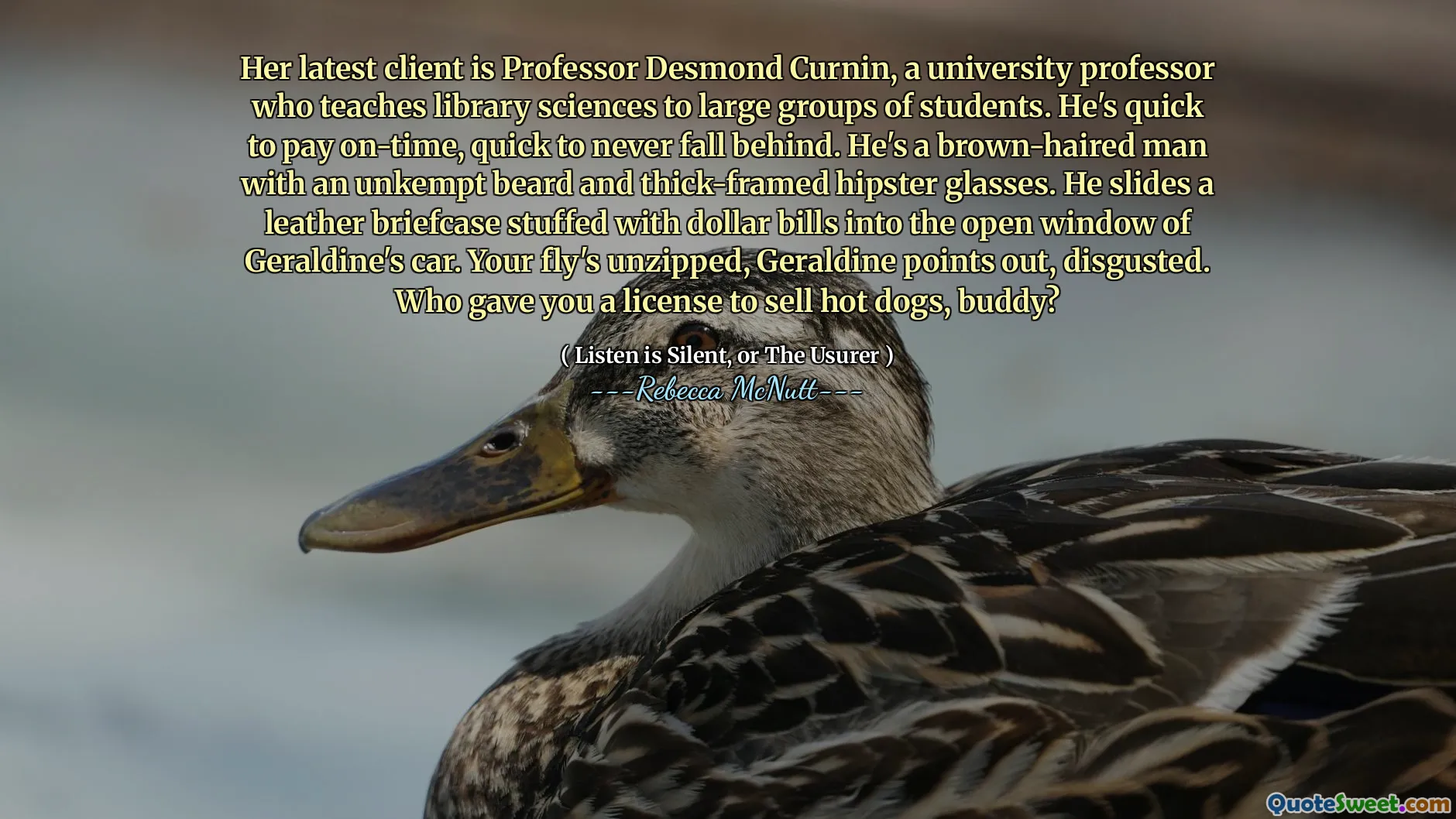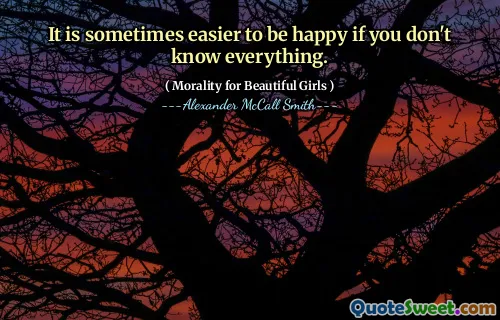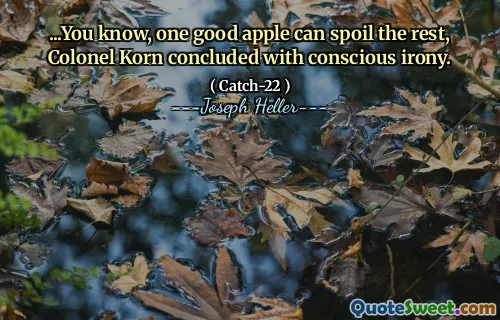
Her latest client is Professor Desmond Curnin, a university professor who teaches library sciences to large groups of students. He's quick to pay on-time, quick to never fall behind. He's a brown-haired man with an unkempt beard and thick-framed hipster glasses. He slides a leather briefcase stuffed with dollar bills into the open window of Geraldine's car. Your fly's unzipped, Geraldine points out, disgusted. Who gave you a license to sell hot dogs, buddy?
This quote brilliantly captures a quirky encounter filled with subtle irony and social commentary. On the surface, it introduces us to Professor Desmond Curnin, a figure who embodies the archetype of academia—knowledgeable, orderly in his finances, and somewhat unconventional in appearance with his unkempt beard and thick-framed hipster glasses. The professor's act of sliding a briefcase stuffed with dollar bills into a car window merges elements of mystery and perhaps illicitness, contrasting sharply with the propriety expected of a university professor. Geraldine's sharp, even crude, admonition—"Your fly's unzipped"—injects humor and a dose of real-world bluntness into a scene that might otherwise be read as entirely formal or secretive.
The imagery here is vivid and thought-provoking. It reflects on how appearances can mask complexity and the unexpected intersections of worlds—academia meeting the street-level hustle implied by the 'hot dogs' metaphor. This interaction also subtly critiques institutions and roles through the lens of everyday imperfections and absurdities. The way Geraldine addresses the professor with a mix of disgust and wit suggests a familiarity with human errors, thereby humanizing the characters and adding layers to their social dynamic.
Furthermore, the quote draws attention to themes like transactional human interactions, social class and role-play, and the collision between professionalism and casual irreverence. The book, "Listen is Silent, or The Usurer," by Rebecca McNutt, from which this passage likely originates, seems to explore contrasts and contradictions within human behavior and societal roles, making this particular excerpt a rich microcosm of its broader themes.

